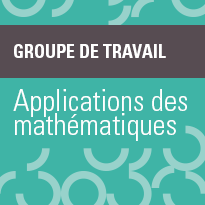Groupe de Travail "Applications des Mathématiques"
le mercredi à 11H00 en salle 7
Contacts : Nicolas Crouseilles, Thibaut Deheuvels, Frédéric Marbach.
Le groupe de travail propose des exposés centrés autour de l'analyse, l'analyse numérique et le calcul scientifique. L'accent est mis sur une forte interactivité avec les auditeurs.
Comment venir à l'ENS ?
Contacts : Nicolas Crouseilles, Thibaut Deheuvels, Frédéric Marbach.
Le groupe de travail propose des exposés centrés autour de l'analyse, l'analyse numérique et le calcul scientifique. L'accent est mis sur une forte interactivité avec les auditeurs.
Comment venir à l'ENS ?







